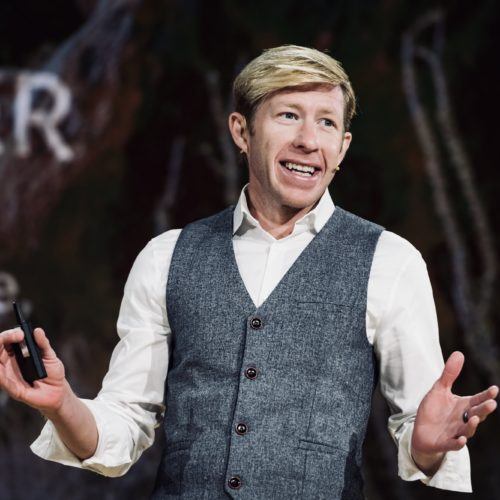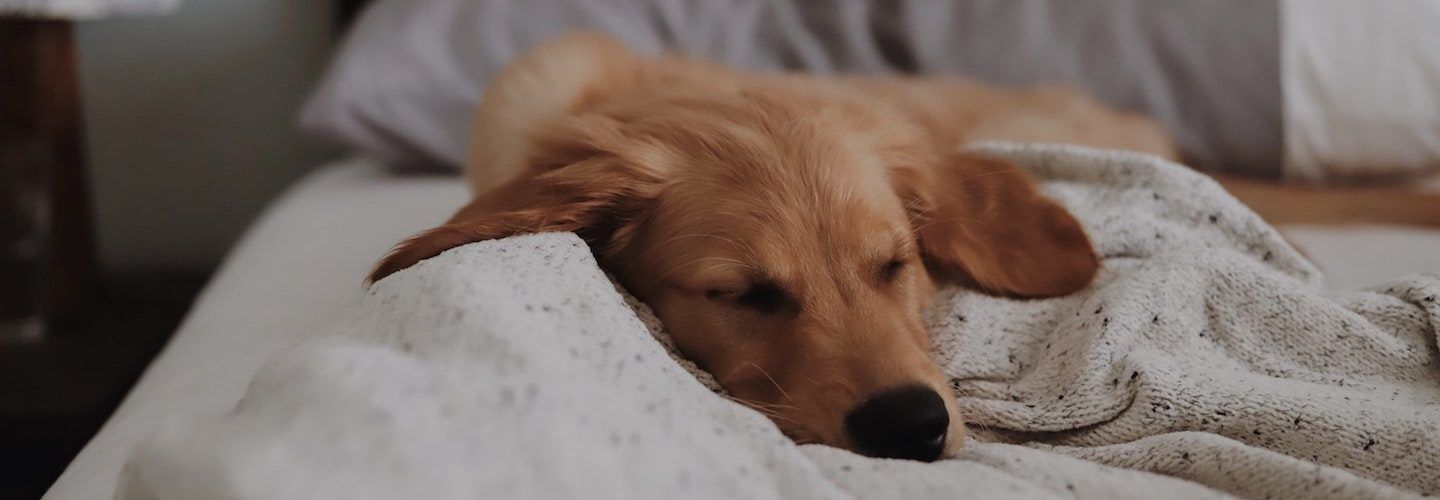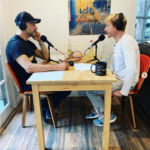Check out more content with sleep expert, Matthew Walker, Ph.D.:
- (April 1, 2019) Part I of III: Dangers of poor sleep, Alzheimer’s risk, mental health, and memory
- (April 8, 2019) Part II of III: Heart disease, cancer, sexual function, and sleep disruption
- (April 15, 2019) Part III of III: The penetrating effects of poor sleep from metabolism to genetics
- (June 17, 2019) AMA #1: Strategies for sleeping more and sleeping better
- (October 28, 2019) AMA #2: short sleep mutants, optimal sleep environment, & sleep apnea
- (August 31, 2020) Sleep & Covid-19: Sleep and immune function, chronotypes, and hygiene tips
- (September 7, 2020) AMA #3: Fasting, gut health, blue light, caffeine, REM sleep, and more
In this special episode, Matthew Walker returns for his third AMA episode to provide his expert insight into numerous sleep-related questions directly from listeners. He explains how he adjusted his hypotheses on topics like blue light and caffeine, and why he is more bullish on the importance of REM sleep. Matt also answers questions about sleep wearables, how fasting affects sleep, how sleep deprivation impacts gut health, and magnesium as a sleep aid. Finally, Matt reveals what he believes is the next evolution in sleep science and technology.
If you’re a subscriber, you can now listen to this full episode on your private RSS feed or on our website at the show notes page for this episode. If you are not a subscriber, you can learn more about the subscriber benefits here.
We discuss:
- Matt’s framework for changing his mind when faced with new information [1:30];
- Blue light—How Matt shifted his thinking [5:45];
- Caffeine—How Matt has adjusted his hypothesis [12:00];
- REM sleep—Why Matt is more bullish on the importance of dream sleep [16:30];
- How to increase REM sleep [27:30];
- Sleep tracking wearables—criteria for evaluation, and why Matthew favors Oura [35:00];
- Does the electromagnetic force of devices have any impact on sleep? [40:15];
- The relationship between fasting and sleep [46:15];
- Restless leg syndrome [58:10];
- Magnesium supplementation as a sleep aid [1:03:00];
- The relationship between sleep deprivation and gut health [1:08:30];
- The next evolution in sleep science and technology [1:16:30];
- Questions Matt would like to explore if money was no issue [1:24:15]; and
- More.
Matthew’s framework for changing his mind when faced with new information [1:30]
Special episode of The Drive where Peter discussed things he has changed his mind about: Strong Convictions, Loosely Held
How does Matthew think about changing in mind in the presence of new information?
Three buckets:
- Evidence that’s coming in that’s helping reinforce a belief making Matt more bullish
- Beliefs which Matthew holds presented with new evidence that doesn’t change his mind but it might add a new construct in that equation
- Contradiction: New evidence against his current hypothesis resulting in a rejection that hypothesis.
In summary:
- New information leads to his beliefs becoming
- i) Stronger,
- ii) more nuanced, or
- iii) rejected
Peter’s rant about science—
- His pet peeve: When the media/press presents scientific information as anything but probabilistic
- Most people don’t have the opportunity to be educated scientifically, but those who are start to realize that it’s really all probabilistic
- Data is very messy and therefore the best you can do when an experiment is concluded is increase your confidence in the probability of something being true or being false
- “There’s no proving anything in science.”
Blue light—How Matt shifted his thinking [5:45]
Overall: Matt says the things he’s most changed his mind about recently is his understanding about the impact of blue light on sleep ⇒ “I’ve actually down-regulated my belief in the effects of blue light.”
In the book, for example, he wrote about study from Harvard (which he still thinks is valid)—
- Participants either read on an iPad or a book under dim light for an hour
- It showed that the iPad had this detrimental effect on sleep by delaying the release of melatonin
- That caused a reduction in REM sleep
- The even concluded that the effect lasted a couple days after stopping the iPad reading at night
Research by Michael Gradisar from Flinders University pushed back on that conclusion—
- This study suggested it’s that these devices ACTIVATE us, and that activation masks/mutes our sleepiness so we go to bed later and lose sleep
- It’s less about the blue light, and more about the devices ability to increase alertness/physiological arousal in the brain
- In other words, you were sleepy all along, but these devices hit a mute button on the sleepiness
In summary:
- The studies implicating blue light as especially bad for sleep were principally looking at melatonin
- In other words, they were simply saying, How does it affect your melatonin?
- But the next question should be, How does it then affect as a consequence of that change in melatonin?
- And it turns out that the melatonin piece may not be the principal reason why sleep is affected when you consider the brain arousal component
- “It really sort of made me shift my belief system.”
The next evolution of the science will be to do two types of studies—
- Firstly, a study where you use the same amount of light exposure but use different types of lights (type of light being the variable)
- Secondly, studies where the type of light actually becomes the constant stimulus where you maintain the same light exposure
- But in one condition you’re doing something cognitively activating
- And in the other condition you’re getting hit with the same light but not doing anything cognitively activating
Caffeine—How Matt has adjusted his hypothesis [12:00]
Overall: Matt has added more construct to his beliefs around caffeine, sleep, and disease risk
{end of show notes preview}

Matthew Walker, Ph.D.
Dr. Walker earned his degree in neuroscience from Nottingham University, UK, and his PhD in neurophysiology from the Medical Research Council, London, UK. He subsequently became a Professor of Psychiatry at Harvard Medical School, USA. Currently, he is Professor of Neuroscience and Psychology at the University of California, Berkeley, USA. He is also the founder and director of the Center for Human Sleep Science.
Dr. Walker’s research examines the impact of sleep on human health and disease. He has received numerous funding awards from the National Science Foundation and the National Institutes of Health, and is a Kavli Fellow of the National Academy of Sciences.
Dr. Walker is the author of the International Bestseller, Why We Sleep. It has a singular goal: to reunite humanity with sleep.
In addition, Dr. Walker is an internationally recognized speaker, a successful entrepreneur, and a Sleep Scientist for Google.
[sleepdiplomat.com]
Twitter: @sleepdiplomat
Center for Human Sleep Science: https://www.humansleepscience.com/
Matthew’s publications: https://www.humansleepscience.com/p-u-b-l-i-c-a-t-i-o-n-s





Fantastic discussion. Can I ask the obvious question: can we make the Oura ring the remote control for the Ooler? As in, when I get into bed and start to sleep the Oura app on the phone talks to the Ooler app which via Bluetooth tells the Ooler to power up and match my body temp, and then throughout the night as body temp changes the Oura sends Ooler new temp signals, finally when I get up the Oura tells the Ooler to turn off. How cool would that be – optimized sleep and no need to use the Ooler app! The Ooler app requires a pretty sucky trial and error process to find the right temp to go with and then an ongoing manual process to keep reconfiguring it to take account a change in schedule (I want it to start or stop sooner or later) or a late meal, or intense exercise, or alcohol (drop the temp a couple of degrees) so this would seem like a win all around for both companies.
Love this idea—brilliant!
Hi
This was a brilliant discussion – so many enlightening moments.
Glad to hear about the benefits of decaf. I have had to stop drinking caffeinated coffee due to my insomnia, so have been drinking decaf for the last few months and to be honest get some sort of buzz, wasn’t sure why but appears it could be because of the antioxidants.
I was intrigued with the discussion around REM sleep and the importance of it. I have been using the oura ring for a couple of years now and what I have noticed is that I actually have always had a high percentage of REM, most nights between 20-30% but then have really struggled with Deep Sleep, majority of nights in the red, so I have been experimenting with many sleep hacks to improve deep sleep. It was interesting that Matthew mentioned (it may have been in episode 126 about the importance of dreaming (that occurs in REM sleep) for emotional health. I therefore wonder whether there is a link between meditation/breathing and REM sleep. I have a daily meditation practice (time-frame similar to the oura ring), using a variety of breathing techniques, my emotional state, even through covid has been good, and REM has remained consistently high through this time. It may be an interesting study…
I was hoping to get your notes on alcohol and sleep but you completely skipped that topic on your notes. I have to go back and listen again to take notes; i was listening to the episode during my run so couldn’t take notes. 🙂
AT, my I cut to the chase? Alcohol is finished.
* May *
Do you mind getting a little more specific about magnesium here in the notes? “two capsules” of Magtein, every brand may not have the same capsule size so this would be helpful to clarify. So does that also mean he uses Nature Made magnesium oxide?
Peter has also mentioned he uses Doc Parsley’s sleep aid which has Magtein in it so is he taking even more Magtein and then even more Magnesium Oxide?
Finally, Peter has mentioned he supplements with SlowMag, is that only during fasting then?
Also, Nature Made Magnesium Oxide got an F from Lab Door!
https://labdoor.com/review/nature-made-magnesium
I thought the same thing when I heard Peter mention Nature Made. Thought for sure I had misunderstood him..
Matt says, “One of the things would like to try and do is find out if I can discover a technological way to … compress sleep down to four hours, four and a half hours, and it remains just as good as eight hours of sleep.”
An obvious approach would be to work on drugs that target ADRB1, DEC2, or NPSR1 — the genes identified in non-pathological short sleepers. Presumably, modulation of these proteins or their receptors would pharmacologically mimick the short sleeper phenotype, giving people with normal variants the same ability to thrive on much less sleep than most people need.
I had mild-moderate RLS for several years when I was overweight. I had the classic RLS symptoms most nights when trying to fall asleep. A few months of 65 mg ferrous sulfate Iron supplementation didn’t work whatsoever for me. I then tried for several months a combo after dinner of fish oil, calcium, magnesium, potassium, and probiotics. Those didn’t help either. A year ago I went on Keto and the RLS was completely gone within the first week. I haven’t felt a leg twitch since. I’m down 87 lbs and have gone from 40% body fat to 24% at the moment, but the RLS was gone right away after I cut the carbs – well before the weight loss. I’m left wondering if the RLS had something to do with my insulin resistance, or high/low insulin levels or high/low blood sugar… I can’t explain it. It was a wonderful but unintended side effect. I just wanted to loose weight. But that’s what happened.